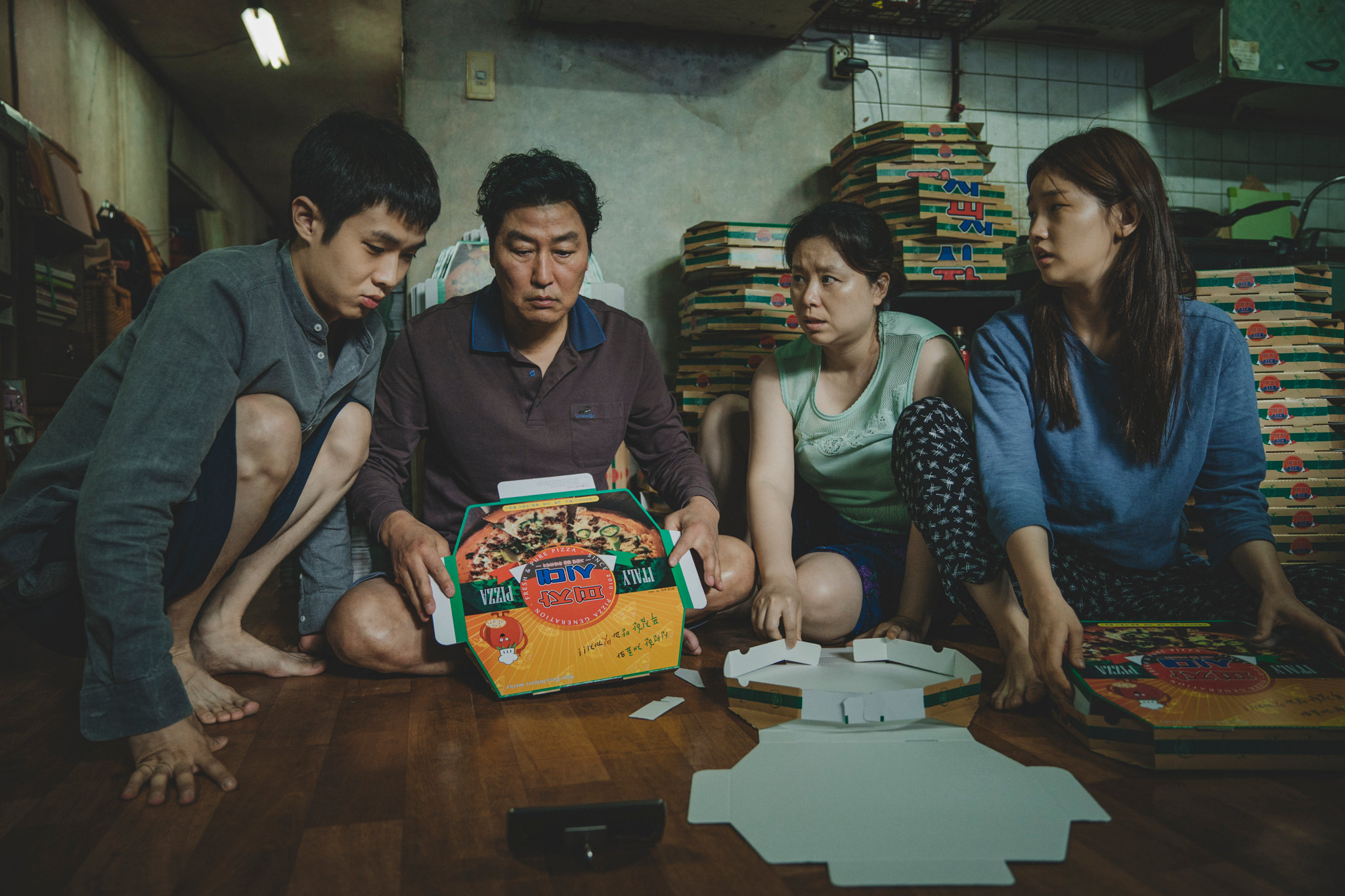“Parasite’s” Infectious Popularity is Well Deserved
If you watched the Oscars a few weeks ago but had only kept a casual eye on movies this year, you may have been surprised to see a Korean film leave with five awards, including Best Picture. Yet if you had the pleasure of seeing Bong Joon-Ho’s “Parasite” in theaters, you’ll understand that this decision was hardly a fluke.
“Parasite” tells the story of two families, the wealthy Parks, who live in a magnificent modern-style home, and the Kims, a poor family living in a semi-basement home. The Kims struggle for everything they have, stealing Wi-Fi from nearby cafes and scrapping by on the measly salary they can garner folding pizza boxes. Then, their son Kim Ki-Woo is offered a job as an English tutor for the Park’s daughter, kicking off the Kim family’s infiltration of the Park household.
The Parks, in their detached naivety, allow this invasion to happen right under their noses. All four members of the Kim family find work for them in some capacity, fully controlling the family and their home.
As they make more and more money, the audience sees the Kims’ lives slowly become more luxurious and comfortable: hot meals, new phones, nicer clothes. Everything seems to be going their way, until the Park family leaves for a camping trip to celebrate their young son’s birthday.
At this point, the narrative begins to wander into a somewhat morbid semi-fantasy realm, while still feeling all too real.
From story to screenwriting, set design to acting, editing to score, “Parasite” hits on nearly every aspect of filmmaking. Each scene and shot is used precisely to bring the viewer into the film, drawing on their emotions and uncertainty as the story builds to its climax.
Throughout the film, the Kims are nearly found out several times, and the fear of being discovered infects you as you inevitably root for their safety. With each passing moment, however, it becomes clear that they won’t be able to hold out forever, and when it all comes to a head – even knowing it was never going to work – the viewer can’t help but feel trapped along side them.
Combining aspects of drama, comedy, horror and thriller films, Bong’s film blurs the lines of genre as the narrative lurches between the real and the surreal. While the narrative pulls in directions one would never expect at the start, it maintains a strange level of plausibility. As unexpected as it all might seem, it isn’t entirely unbelievable.
“Parasite” works so well in part because it functions within the boundaries of its narrative world while slowly pushing the story and the viewer to the absolute edges of these assumptions.
But perhaps the most incredible aspect of the film is how Bong Joon-Ho tells a story that never clearly defines its heroes and villains.
While it is easy enough to feel sympathy for the struggling Kims, they are also fueled solely by material desires, and commit heinous fraud in order to do so. The Parks, similarly, are easily dislikable for their utter lack of awareness for the workers around them – the Kims plan only works because the Parks are willing to fire other workers without thinking, creating job openings for the family. Yet, one could have a semblance of sympathy for them, as they are in many ways the victims of this story due simply to their gullible nature.
From here, it isn’t hard to see the class-warfare dynamics Bong utilized. The two families are clearly divided by wealth above all, a fact always present to the Kims. All they are seeking is security in their own lives, but they can only do so at the expense of other working-class people. At one point, Kim Ki-Woo writes a letter expressing his desire to one day buy the Park house for his family. When he finishes the letter, the audience returns to the semi-basement, where Ki-Woo was writing.
However, the film ends with an original song, “Soju One Glass,” which had initially been titled “564 Years,” named for the amount of time it would take Ki-Woo to earn enough money to afford the home.
The final moments of the film paint Ki-Woo’s optimism against a world filled with utter hopelessness, summarizing Bong’s thesis on class and capitalism.



